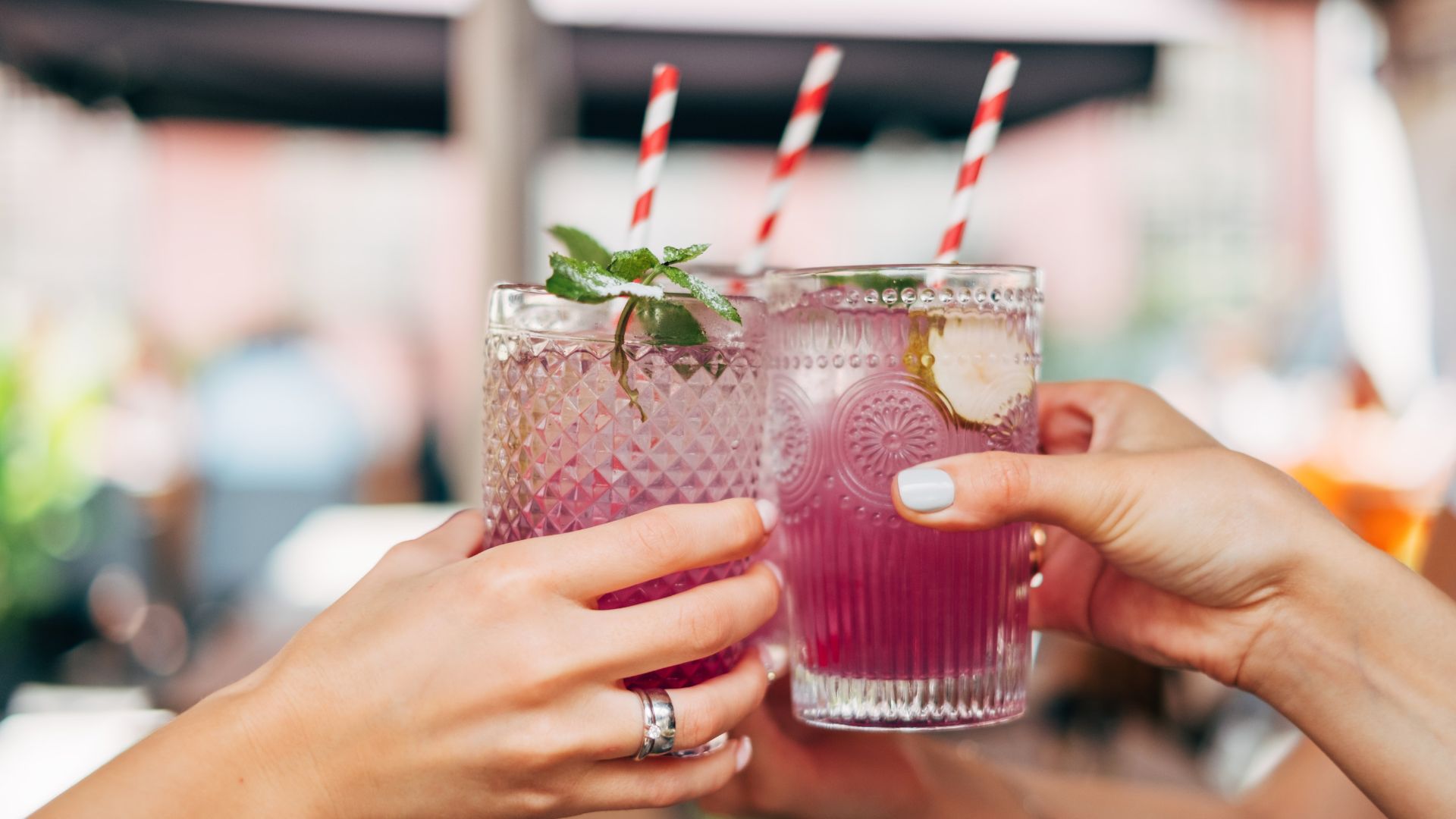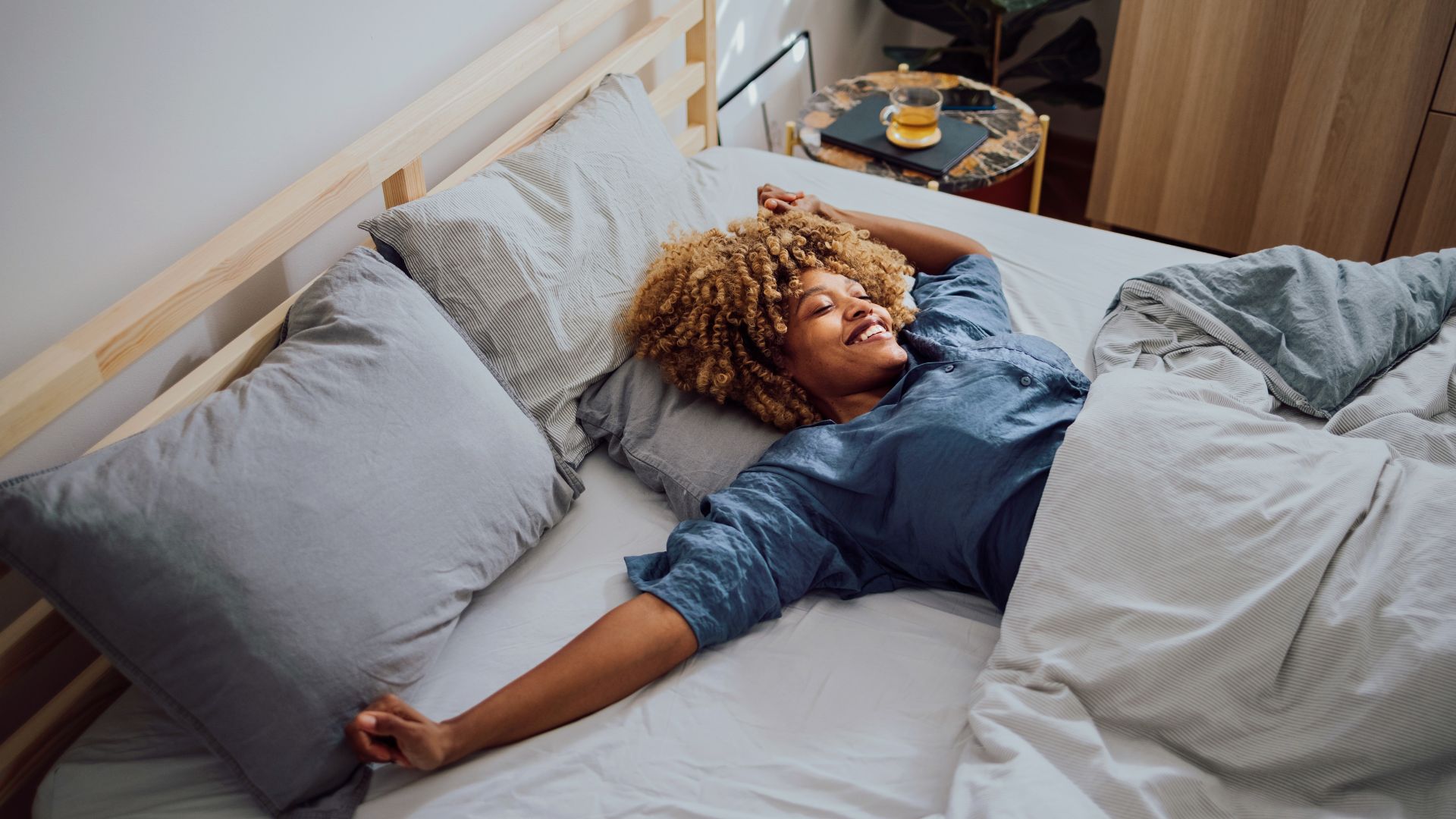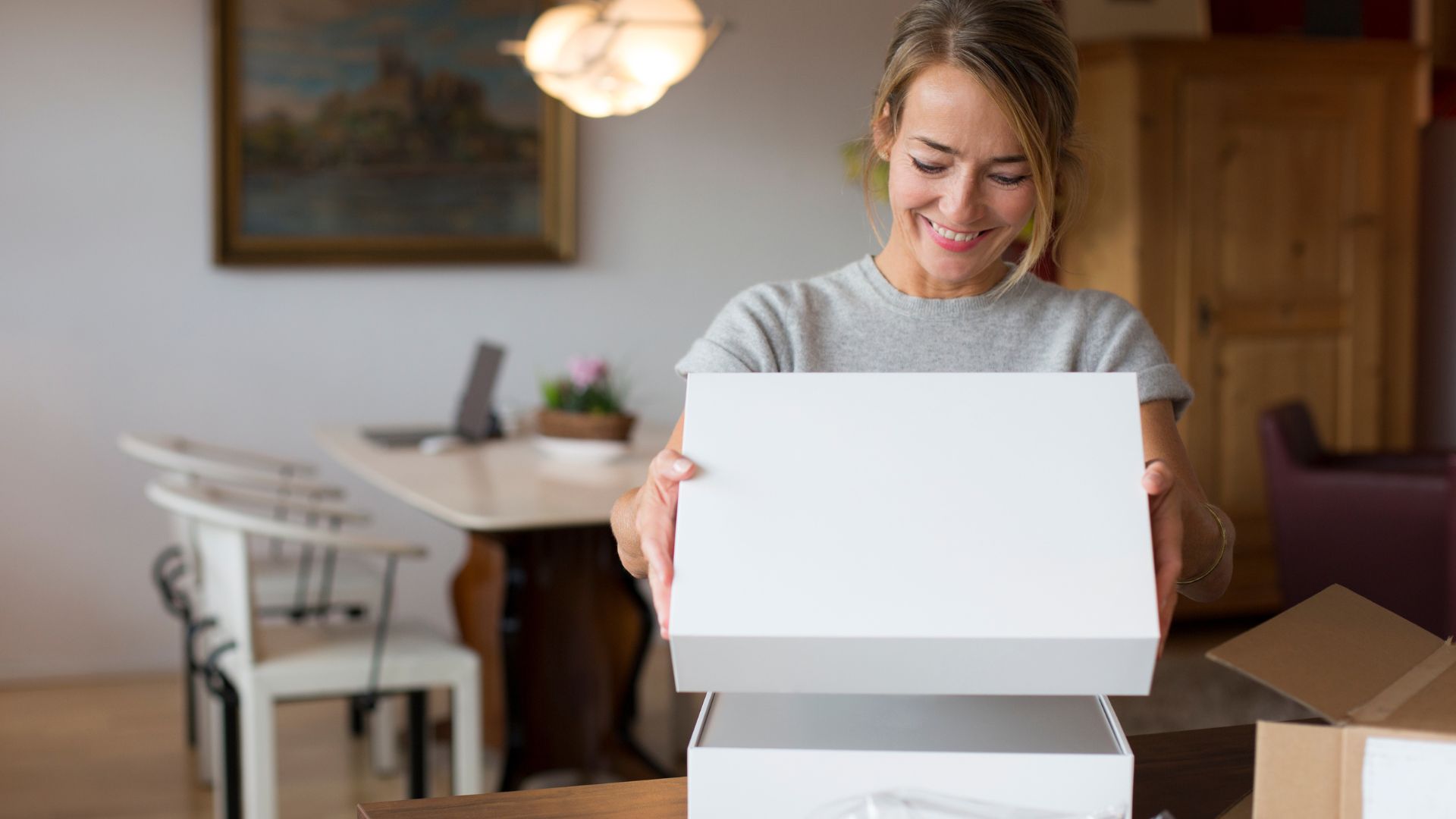Looking to cut down on alcohol? Nutritionist reveals a brilliant tip that could make things easier
As party season approaches you may be planning to cut down on alcohol for a while, here's how to do it, according to the nutritionists


It’s coming to that time of year when some of us start to cut down on alcohol. With the sobriety challenge of Sober October here and party season soon approaching, it can be a good idea to take a break from the booze before the busy season begins.
Between socialising and stressful work weeks, you're probably fully aware of just how difficult - or awkward - it can feel to cut back on how much you're drinking. Many social occasions are centred around alcohol and having a drink every day, whether it's catching up with friends or relaxing in the evening, can feel like a habit that's just snuck up on you. However, if you're reading this, you're also likely fully aware that cutting down on how much alcohol you drink could be hugely beneficial.
So what can we do to make this lifestyle change all that easier? We spoke to nutritionists and registered doctors to find out their recommended tips and tricks to channel our inner Sober Sally. From the best alternatives to alcohol to all the benefits of not drinking alcohol in the short and long term, here's what you need to know.
How to cut down on alcohol
There are many ways you can make this transition easier. However, one of the simplest and most effective ways is by swapping out your usual alcoholic beverage for one that’s just as enjoyable but alcohol-free. "My number one tip is to find another way to unwind," says Megan Lyons, a certified clinical nutritionist. "This begins with creating a fun ritual they look forward to. For many, it's not so much craving alcohol, but looking forward to that unwinding ritual that becomes the new craving."
As much as this means finding another drink you enjoy to relax in the evening, it also means changing up your lifestyle. Instead of going to the pub for a drink with friends, try an alternative activity like going for a walk or catching up over a meal at a restaurant that doesn't serve alcohol.
While it won't be possible for everyone, meeting up at a different time of day can also help with this. For example, you're less likely to have to navigate conversations around drinking at a coffee shop during the day than at a pub in the evening.
This is a tip for those looking to cut back on their drinking though, rather than those looking to quit drinking entirely. If you're concerned about how much you're drinking or think you might have a drinking problem, speak to a professional.
Sign up to our free daily email for the latest royal and entertainment news, interesting opinion, expert advice on styling and beauty trends, and no-nonsense guides to the health and wellness questions you want answered.

Megan Lyons graduated from Harvard as a holistic and clinical nutritionist and began to pursue her passion for wellness. She opened The Lyons' Share Wellness in 2014, a company that provides nutrition consulting and several health coaching resources.

Benefits of cutting down on alcohol
1. You'll feel better day to day
Aside from the dreaded hangover, drinking even in moderate amounts (let alone drinking alcohol every day) can cause our bodies to feel all sorts of rubbish. From sluggishness and headaches to the combined effect of alcohol and menopause, it doesn't take much boozing to affect our daily health and wellbeing.
Speaking to Dr Luke Powles, the associate clinical director at Bupa Health Clinics, he says there are surprisingly lots of health issues that can be avoided by cutting down on your alcohol intake. "You may find that your blood sugar and pressure lowers and instances of headaches, indigestion, heartburn and stomach issues reduce," he explains.
That's not all. He also says that cutting down on your drinking can massively help if you're struggling with rosacea or acne, as skin issues are often linked to alcohol intake.

Now the associate clinical director, Dr Powles started his career as an NHS doctor and for nearly 12 years worked both in GP offices and hospitals. He then became lead physician at Bupa's health clinics in King's Cross and Canary Wharf in London.
2. Maintaining weight-loss
If you're trying to figure out how to lose weight in a week or how to lose weight without dieting then it's a good idea to look at how much alcohol you're drinking. Drinks like beer, IPAs and wine, are all particularly calorific and so is the food many of us tend to eat during and after drinking.
As well as alcohol's rich calorie-content, Dr Powles points out that when we drink, our body becomes focused on processing that alcohol rather than burning fat. As research from the University of Pennsylvania explains, those who drink more tend to struggle to maintain weight loss than those who go tee-total.
When we drink less (or not at all), our body can focus on other 'non-essential' tasks like burning fat and absorbing key nutrients at a faster rate instead.
Opting for spirits and low-calorie alternatives can help with this. If you're looking for more suggestions, take a look at our list of low-calorie, non-alcoholic drinks in a can and alcoholic drinks in a can.
3. Improved sleep
There truly is nothing more important than getting our sleep. We should always prioritise learning how to sleep better and avoid anything that stops us from achieving that, with research suggesting more and more than disrupted sleep has a serious impact on our mental and physical wellbeing. Unfortunately, as much as alcohol can at times make us feel sleepy and relaxed, it's significantly more disruptive than helpful.
Megan Lyons, who is also a board-certified holistic nutritionist and the owner of The Lyons' Share Wellness, is quick to stress the sleep benefits that can come from limited alcohol consumption. She says, "The quickest thing that most of my clients notice is that, if they're using a sleep tracker, their sleep scores improve dramatically without alcohol. This is because our bodies don't have to process alcohol while we sleep."
The reason alcohol is so good at ruining our sleep, aside from the caffeine that some beverages contain, is because of the work it forces our liver to do. “Typically, our liver is the first to work on removing alcohol from our system as soon as we fall asleep. This can lead to an elevated heart rate during sleep, which in turn lowers your sleep score. So, without alcohol, you enjoy better sleep,” explains Lyons.

4. Improved skin appearance
Reducing our alcohol intake not only helps our insides and the way we function, but it can also be beneficial for our skin, hair and nail health. You may have noticed after a particularly boozy weekend your skin may look a little tired and dehydrated, hair not quite as lively as it normally is.
“Reducing alcohol can have a positive impact on your appearance,” explains Dr Dave Nichols, an NHS GP and medical advisor at MyHealthChecked, an at-home testing provider. “Alcohol dehydrates your body which may lead to skin changes such as dullness, blotchy or dry skin. Reducing or stopping alcohol will therefore improve the hydration of your skin which can help to improve your appearance.”
Even if you know the best skincare routine to follow for your age or have the best skincare products, excessive alcohol intake can undo it all. And it’s not just because of how dehydrating alcohol is, but also the lack of quality sleep and disruption to your usual diet that comes with drinking.

Currently working as a GP in Stockport, Dr Dave Nichols also works as a doctor for both international and national sports teams. He specialises in delivering medical advice that supports his patient's lifestyle choices and enhances their health outcomes.
5. Financial savings
Now more than ever, it’s clear that alcohol prices are rising both at the shops and at the bars. We all know the dread of looking at the online banking app the morning after a trip to the bar and seeing all those cocktails adding up.
Without even realising, we can spend way over our budget on a fun-filled weekend and all our spare funds are gone with the pop of a cork. Dr Nichols echoes this point when he says that “less spending on alcohol can result in significant financial savings over time.”
Alcohol-free alternatives, whether that’s drinks or activities, usually work out to be much cheaper too.

6. Reduced risk of accidents
You may or may not be able to relate to this, depending on how clumsy you are after a few drinks, but there’s no denying alcohol makes us a little less cautious with our bodies. Our reaction times are slower and hazard perception is reduced. Many of us will be able to remember a time when we woke up with a random bruise on an arm after a few drinks with no recollection of how it got there.
“Alcohol impairs judgment and coordination, increasing the risk of accidents and injuries. Going sober or cutting down our alcohol intake can lead to a safer and more injury-free lifestyle,” says Dr Chun Tang, Medical Director and GP at Pall Mall Medical. So whether we stumble when dancing with friends or simply bump into someone, it’s less likely to happen with a decreased level of alcohol.

Dr Tang specialises in acute and chronic disease management with over 15 year's experience in a primary care setting. He also has worked in the medical management of acute minor and major patients with both walk-ins and referred cases.
7. Improved mental health and overall disposition
Alcohol is a depressant so it's hardly surprising that drinking too much too regularly can make us feel a bit rubbish in the long term. Quitting drinking, or at least cutting back on your intake, can help to reduce this feeling.
The less post-drink anxiety (otherwise known as 'hangxiety') we experience each week, the stronger and more consistent our good moods will be throughout our everyday lives.
Dr Powles highlights this, explaining that cutting down can lead to overall better dispositions and even healthier relationships with others. He explains, “This may help you grow better relationships with others as you’re able to spend more quality time with those close to you and bond over a range of activities.”
You're also going to have fewer days feeling the side effects of drinking, which is bound to make you feel better and it's perhaps unsurprisingly one of the best things that happens when you give up alcohol for good.
8. Enhanced quality of life
As well as the short-term health benefits, choosing to reduce your alcohol intake for the foreseeable can majorly reduce to risk of getting serious diseases later down the line. From heart complications to liver disease, drinking large amounts consistently can cause life-threatening damage to the body.
Not only will cutting down on drinking reduce the chance of developing illnesses like these, but it can also lead to health improvements. “Long-term benefits of reducing alcohol intake include lowering blood pressure, improving cholesterol levels, weight loss, and even improved gut health,” says Dr Nichols, with new research suggesting that being able to go to sleep at the same time every night is hugely important for our gut health.

Tips for cutting down on alcohol
- Don't keep alcohol at home: If you're in the habit of reaching for a glass of wine after work, take the temptation away. "This may help you to break home drinking habits – and may even encourage you to get creative and try out some mocktail recipes, especially if the idea of soft drinks seems boring," says Dr Powles. You could also try one of the best non-alcoholic drinks in a can for some variety.
- Set up a monthly alcohol budget: Dr Powles recommends setting up a monthly alcohol budget so you can keep much better tabs on how much you're spending. If by any chance you near your budget then you could switch to an alternative for the rest of the month to save. It's one way to encourage more mindful drinking too.
- Share your progress: Whether you’re active on social media or not, sharing your journey with others can be such a great way to keep you consistent, and more importantly supported, through what can feel like a dramatic lifestyle change.
- Find inspiration: "There’s been a real flurry of celebrities announcing their sobriety and discussing their relationship with alcohol, like Tom Holland and Adele. Listening to them talk about their journey could help you feel more positive and accepting of yours." Try one of the best quit lit books for a good read.
- Discover your favourite alternative: You might like to switch to a drink that still offers some buzz if you're cutting down on your drinking, rather than stopping completely. Lyons recommends choosing ones that are low in sugar and caffeine. She says, "Sugar-free sparkling canned options that provide some added benefits of relaxation from ingredients like magnesium, 5-HTP, or Gaba can help ease the transition."
- Prioritise alcohol-free events: Actively choosing not to drink when everyone around you is enjoying their wine and beer is naturally a little frustrating. When first starting this journey it can be a good idea to avoid events or places where drinking is the main focus or you know it’s going to be too uncomfortable for you to enjoy yourself sober.

Emily joined woman&home as a staff writer after finishing her MA in Magazine Journalism from City University in 2023. After writing various health and news content, she now specialises in lifestyle, covering unique cleaning hacks, gardening how-tos, and everything to help your houseplants thrive.